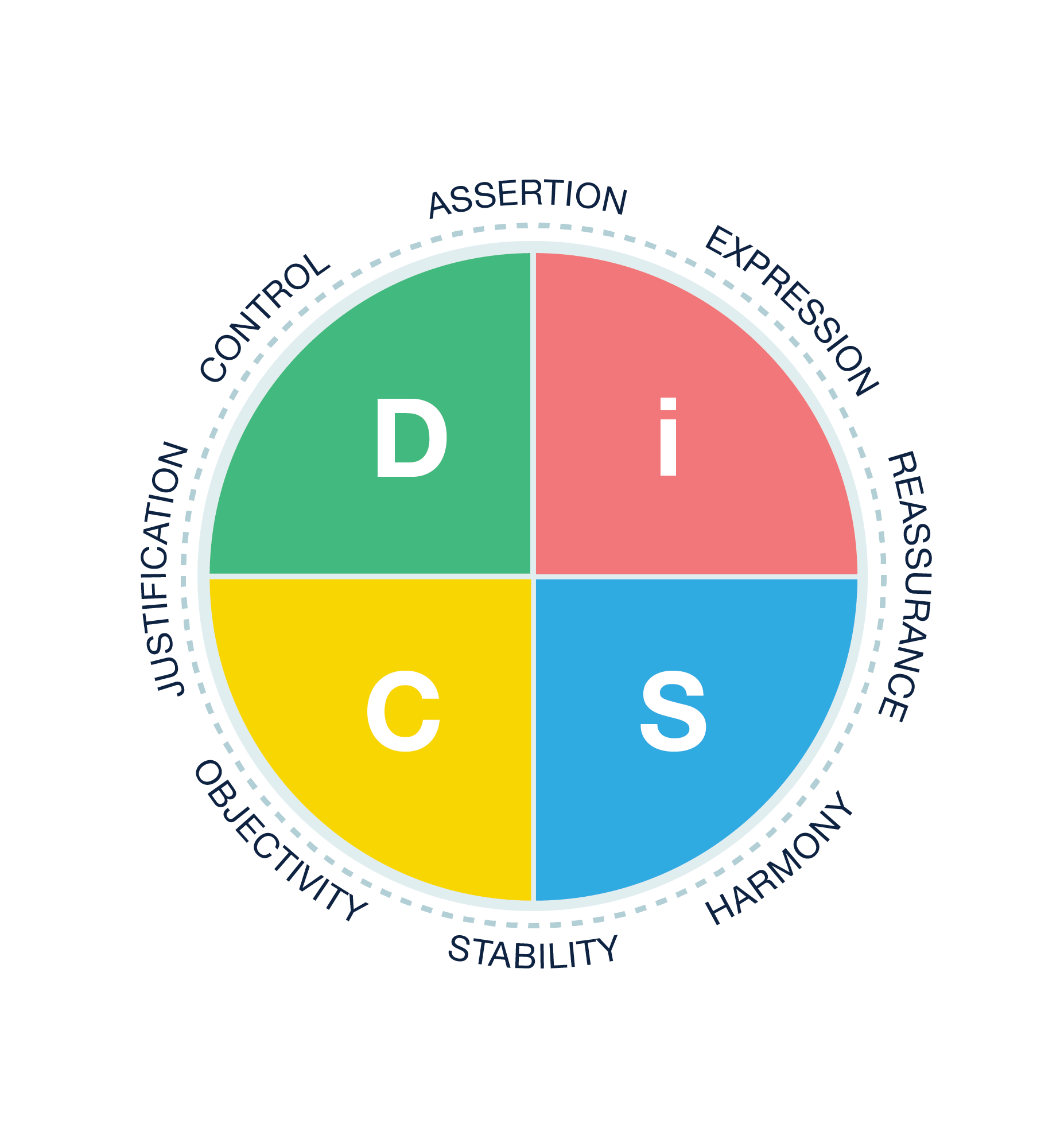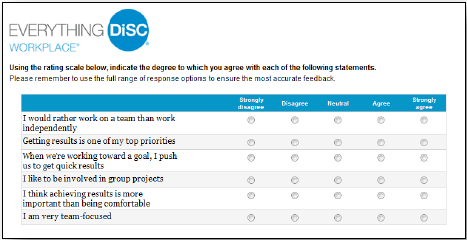DiSC is a great tool to learn more about yourself, how you perceive others, how they perceive you and how to improve the effectiveness of your relations. Unfortunately, there are some disc myths and disc misuses that make you less effective using DiSC if you get misled.
The most common DISC Myths
Myth: disc is the same as DiSC
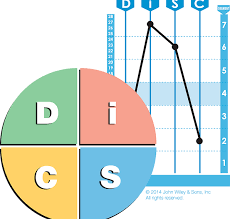 The truth is, there are many versions of disc in the market. The reason is that neither Marston nor Professor John Geier when he finalized the first commercially available disc assessment, protected the intellectual property. John Geier sold his company, Performax to Carlson Learning, today Wiley. For this reason, it is true to say Wiley published the original disc assessment.
The truth is, there are many versions of disc in the market. The reason is that neither Marston nor Professor John Geier when he finalized the first commercially available disc assessment, protected the intellectual property. John Geier sold his company, Performax to Carlson Learning, today Wiley. For this reason, it is true to say Wiley published the original disc assessment.
The predecessor to the disc assessment, developed by Vernon Clarke, refined by John Cleaver, refined and tested by professor John Geier from the University of Minnesota, had 24 forced-choice (4 choices, selecting “most or least like me”) questions. This is the version that got sold and is nowadays still used by many disc vendors. The questionnaire dates back to the ’70s and its precision is not what it is today.
Myth: disc measures your personality
DiSC measures surface behavior traits, that is not the same thing as personality. Personality is way more complex than what is measured by DiSC, some tools used by psychologists or recruiters get closer, such as NEO-PI or 16 PF, or Hogan. They are called Big 5 assessment because they measure 5 personality traits, subdivided in 6 facets each. Is it better to measure personality traits than surface behavior traits? No, it is not, it all depends on what you intended to do with your assessment and which outcome you are aiming for.
Myth: disc is not accurate
There are disc assessments that seem to be less accurate. Why? To make sure if your version of disc is accurate the best is to ask for validity research. Here is what we know: if you take the original disc assessment (personal profile system 6.1, a disc 24 item 4
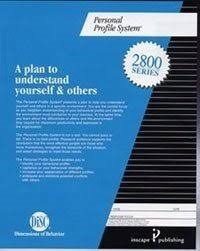
words “most” and “least” statements) brought to the market in 1972, it had reliability scores rating from .36 (C most) to .79 (D most). That is poor and it explains why Wiley, in 1994 undertook extensive research, to revise, renorm and revalidate the instrument by correcting most of the assessment and adding four more questions.
The outcome of this research was the Personal Profile System 2800, which is more than two decades ago and since then, extensive research and validation has lead to computerized adaptive testing, and Everything DiSC assessments. The accuracy ratings are way better today as you can read in the latest research report.
Myth: disc has been around for long, no need for updates
The truth is, everything changes around us, and DiSC needs to follow the trend. Words used 40 years ago, do not have the same meaning anymore. The assessment techniques have evolved too. Everything DiSC uses 80 questions, with adaptive testing technology, that can determine if the answers given are statistically incoherent. When this occurs, more questions of different types are sent to the respondent in real time, in order to determine with more accuracy the personal preferences of the respondent.
Myth: disc measures your natural and adapted behavior
In the early days of disc, Walter Clarke and John Cleaver used the “vector analysis tool”, which consisted in a set of cards that 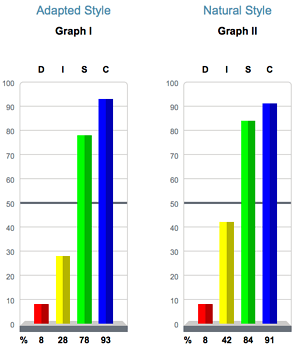 would describe a person’s behavior, “as seen by herself and as seen by others”. William Moulton Marston also mentioned “natural and adapted behavior” in his writing. However, since John Cleaver designed the first 24 question assessment, there have been no specific questions measuring “adapted or natural” behavior. This was established by Wiley when they lead extensive research and by the British Society of Psychology around 1994. This does not mean that people do not adopt “natural” or “adapted” behavior, it just means that the 24 and subsequent disc assessment questionnaires are not designed to measure that specifically.
would describe a person’s behavior, “as seen by herself and as seen by others”. William Moulton Marston also mentioned “natural and adapted behavior” in his writing. However, since John Cleaver designed the first 24 question assessment, there have been no specific questions measuring “adapted or natural” behavior. This was established by Wiley when they lead extensive research and by the British Society of Psychology around 1994. This does not mean that people do not adopt “natural” or “adapted” behavior, it just means that the 24 and subsequent disc assessment questionnaires are not designed to measure that specifically.
Myth: “you don’t need graph III, only using Graph I and II is more accurate”
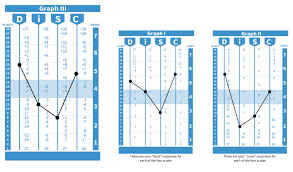 First, Wiley does not use Graph I, II and III anymore (they were used in DiSC Classic), since the new generation Everything DiSC intruments came to the market. Instead you will see a “circumplex”, which is a circular map, with 8 priorities around it. This “new” model goes all the way back to the origins of DiSC where it used to be drawn on a circle. So why the fuss about Graph I, II and III? Because some people claim Graph III is more accurate when others claim you should not consider Graph III, since using Graph I and II, “showing natural and adapted behavior” as some claim, is more effective.
First, Wiley does not use Graph I, II and III anymore (they were used in DiSC Classic), since the new generation Everything DiSC intruments came to the market. Instead you will see a “circumplex”, which is a circular map, with 8 priorities around it. This “new” model goes all the way back to the origins of DiSC where it used to be drawn on a circle. So why the fuss about Graph I, II and III? Because some people claim Graph III is more accurate when others claim you should not consider Graph III, since using Graph I and II, “showing natural and adapted behavior” as some claim, is more effective.
Historically, Graph III is the result of adding up the scores of Graph I and Graph II.
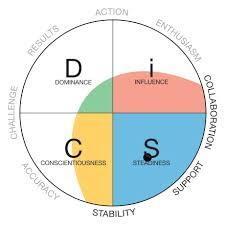
Why was that done? Because the instrument (the 24 question forced-choice) was unprecise, and the research report written in 1996 proves that. By upgrading the questions and adding 4 new questions, Wiley strongly improved the accuracy of the instrument (called Personal Profile System 2800, and later on DiSC Classic II), which has been the DiSC profile of choice for decades.
Dealing with disc myths
As you can see there are some myths around disc (and our version DiSC): the various sales pitches reflect and try to accommodate that variety. There is one original DiSC instrument, which is research-validated. Wiley is the publisher with the largest number of research reports published in the disc-arena. Discover more about the DiSC assessments, facilitation kit, extended learning solutions and complementary reports.

